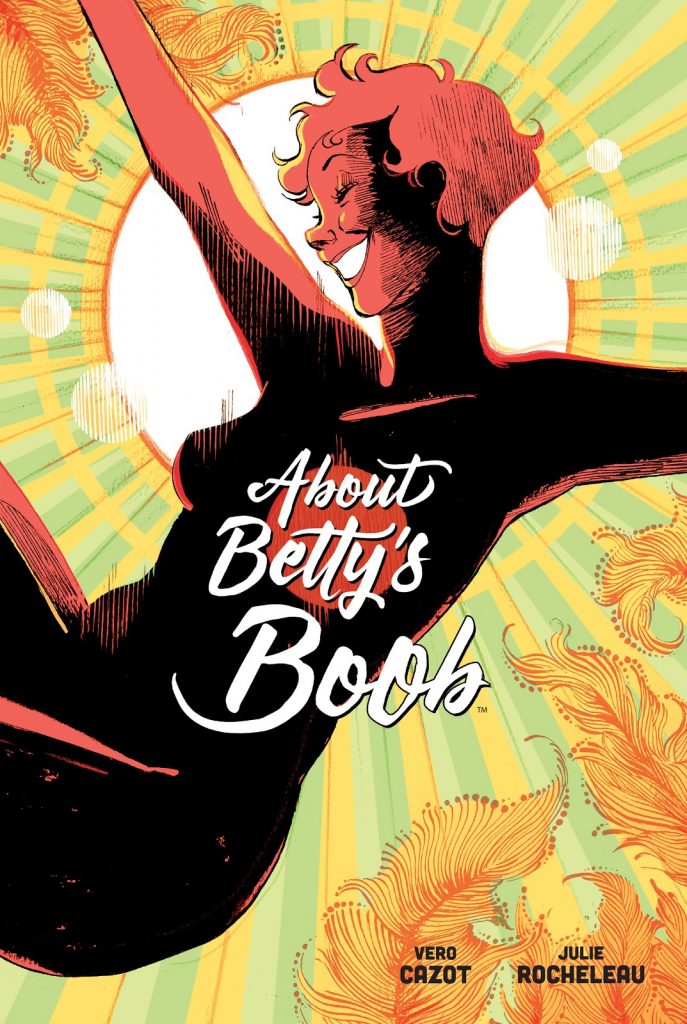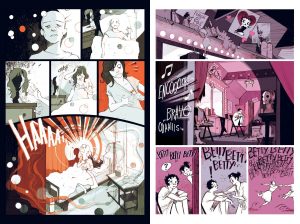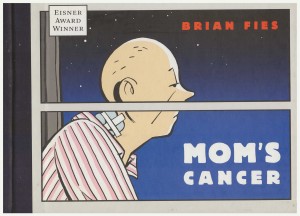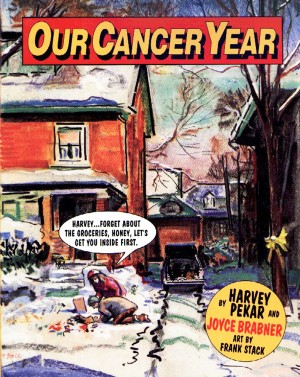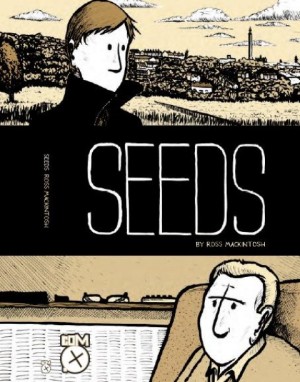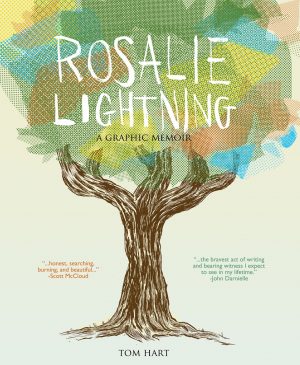Review by Ian Keogh
As the title and cover illustration suggests, About Betty’s Boob deals with cancer and breast removal. Véro Cazot and Julie Rochelot provide a clever start, showing a youngish couple in the aftermath of sex and an army of crabs moving toward Betty’s boob, the crab being the zodiac sign of Cancer. it’s the only scene concerning the cancerous infection, as the creators primarily deal with the aftermath of Betty’s subsequent mastectomy operation. After following an almost realistic path, around halfway it takes a wild swerve into expressionistic fantasy that constantly defies expectation.
Cazot’s focus avoids the trauma of cancer treatment to concentrate on the possible longer term trauma of going through life without a breast. About Betty’s Boob is translated from French, so deals with their health system, but it seems strange that a women who’s just had a breast removed is discharged from hospital with no replacement, if only in the short term. Betty’s solution is to use an apple, which leads to an amusing department store incident when it falls from her clothing.
Rochelot’s illustrative choice is for a mixture of naturalistic realism and cartoon exaggeration, presenting an attractive package given a timeless polish via the limited use of colour. As most of the story is wordless, she carries the heavier burden, but Rochelot’s pages are clear and concise, never leaving room for misunderstanding. Cazot’s choice to go largely without words also supplies a lightness that would surely be absent if we actually saw Betty discussing her condition, and several broad comedy sequences feature. While these remove the story from any form of advice model, there’s no trivialising a heavy subject, just the use of humour to deflect some misery, and while the tone may be generally light, there are emotional scenes, such as the reaction of Betty’s partner to what she’s going through.
The story eventually becomes about Betty’s options, initially the replacements available, then whether she’ll choose to be defined by her missing breast. The surprise becomes the changes in Betty that she doesn’t realise at first, how by being forced to look at aspects of life in a different way, much that she’d previously accepted becomes intolerable, and a remodelling is increasingly attractive.
Exhilarating and life-affirming overall, there are times when Cazot’s narrative runs off the rails due to scenes extended beyond a natural lifespan. A wig chase runs too long, as does the subsequent burlesque sequence, both of which say what they need to very early, although Rochelot’s imagination goes a long way to almost pulling them back from the brink. More successful is the reinforcement of how desirability takes many forms, not all of them conventional. Best of all is how the wild swerve noted at the start is something to embrace, perhaps like a movie becoming a musical. So, a joyous romp and not at all what you might expect from the title and cover alone.
